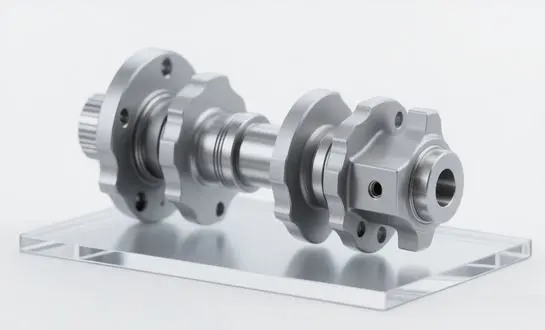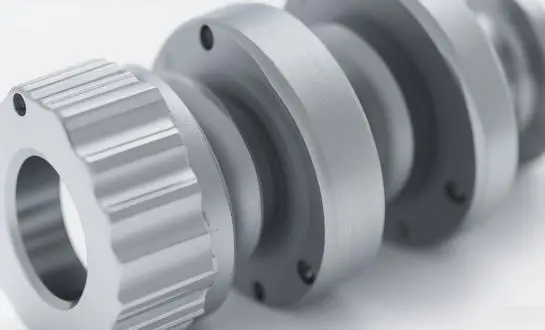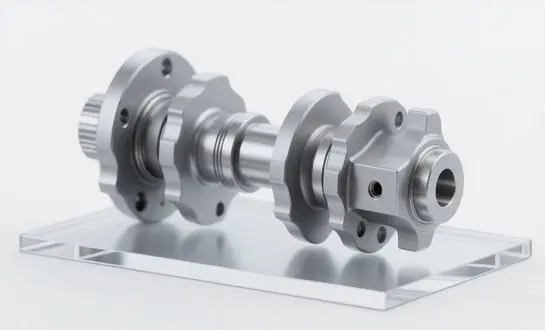When is a casing scraper required before cementing or completion?
In the oil and gas business, a casing scraper is an important instrument that is typically needed before cementing or completing operations to make sure the well works as well as possible and stays safe. This specialist tool is usually required when there is a chance that dirt, scale, or other impurities on the inside wall of the casing might make future procedures less successful. There are several situations when a casing scraper is needed, such as when working with ancient wells, wells that are known to have scaling problems, or wells that are subjected to extreme downhole conditions. Scrapers help increase cement bonding, zonal isolation, and production rates by quickly getting rid of undesired debris from the casing surface. Oil and gas professionals need to know when to use a casing scraper in order to get the most out of their wells and avoid problems during the cementing or completion operations.
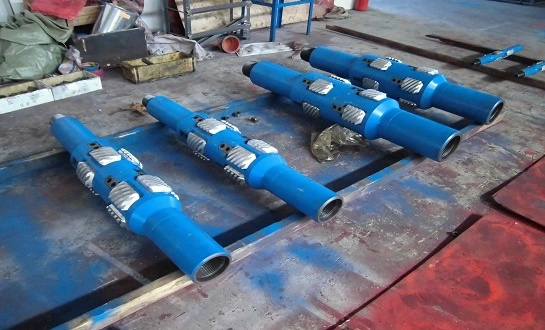
Problems in cleaning traditional casing Before Cementing
Before casing scrapers were common, the oil and gas industry had a lot of trouble getting wellbores ready for cementing or completion work. These old-fashioned procedures didn't always get the degree of cleanliness needed for the best outcomes.
Problems with Regular Cleaning Methods
Using simple tools or circulating fluids to clean things up sometimes didn't work well to get rid of tough dirt, rust, or scale from casing walls. This poor cleaning might cause the cement to not bond properly, the well to not be safe, and problems with production in the future. Not being able to clean the casing completely also made it more likely that contamination would happen during later operations, which might impact the quality of cementing activities or completion procedures.
Effect on Cementing Efficiency
Debris or impurities on the walls of the casing had a big effect on how well the cementing worked. If the cleaning isn't done well, there might be channels or cavities in the cement sheath, which could cause zonal isolation failures. This not only made the well less stable, but it also made it more likely that expensive repairs would be needed in the future. The industry knew that better cleaning products were needed to make cementing operations more successful and improve the overall performance of wells.
The introduction of modern casing scraper solutions
Modern casing scraper technologies have changed the way oil and gas businesses prepare wellbores for cementing and finishing work. These new instruments have solved many of the problems that come with old cleaning procedures, making them more reliable and efficient.
Improvements in the Design of Scrapers
Modern casing scrapers have new design elements that make them much better at cleaning. These might include things like blades with many cutting edges, blades that are set up in the best way for cutting, and materials that are made to last under tough downhole circumstances. Some scrapers include blades that can be adjusted to fit different casing diameters, which makes sure that the cleaning works the same way across the wellbore.
Working with systems for preparing wellbores
Casing scrapers are generally part of larger wellbore preparation systems that often include brushes, magnets, and specific fluids. This integrated method makes the cleaning procedure more comprehensive by getting rid of a broad variety of possible pollutants and making sure the casing is ready for the next steps.
Examination of Scraper Mechanics and Effectiveness in Debris Removal
To get the most out of casing scrapers while preparing a wellbore, you need to know how they work. The effectiveness of debris removal is contingent upon many elements, including scraper design, operating settings, and the characteristics of the pollutants being managed.
The movement of scraper blades
The contact between the blades of a casing scraper and the wall of the casing is very important for how well it works. Many modern scrapers include more than one pair of blades with varied shapes to deal with different sorts of trash. The design of the blade usually includes elements that let you manage how aggressive it is, so that it cleans well without damaging the casing surface too much. The scraper's cleaning performance depends on things like the substance of the blade, the angle of attack, and the pressure of contact.
Fluid Dynamics and Moving Debris
Fluid dynamics are also quite important in the process of getting rid of trash, together with mechanical scraping action. During scraper operation, drilling or completion fluids circulate about, which helps to hold and transfer material that has been removed away from the cleaned region. Some modern scraper designs include elements that make fluid flow patterns better, which makes the tool better at lifting and carrying debris out of the wellbore. Knowing how these fluids move and making the most of them may greatly improve the cleaning process's overall efficiency.
Assessment of Scraper's Role in Cement Job Success
Using casing scrapers has a big effect on how successfully cement work in oil and gas wells go. To justify the usage of scrapers and improve wellbore preparation methods, it is important to properly evaluate this contribution.
Better Quality of Cement Bond
One of the best things about utilizing casing scrapers is that they make the cement bind better. Scrapers make the casing surface perfect for cement adhesion by getting rid of dirt, scale, and other impurities. This stronger link makes the well more stable and less likely to let gas escape, which is good for the well as a whole. Research has shown that wells equipped with high-quality scraping operations often have enhanced cement bond logs, indicating a more uniform and comprehensive cement sheath around the casing.
Fewer Remedial Cementing Operations
Using good casing scrapers may cut down on the requirement for remedial cementing work by a lot. Cleaning the casing surface before cementing considerably lowers the chances of channeling or not covering the whole area with cement. This not only saves time and money, but it also lowers the hazards that come with doing more work on the well. Companies who have put strict scraping rules in place as part of their wellbore preparation have seen a big drop in the number of remedial cementing projects. This has saved them a lot of money and made their operations run more smoothly.
Setting the conditions under which a scraper must be used
To figure out whether a casing scraper is needed, you need to carefully think about a number of well characteristics and operating aspects. Setting defined rules for how to utilize scrapers helps make sure that proper preparation is done the same way on all projects.
Age and History of the Well
The age and history of a well are very important in deciding whether or not a casing scraper is needed. Mandatory scraping procedures are more likely to help older wells or wells that have had problems with production in the past. Over time, these wells might collect scale, corrosion products, or other debris, which can make it hard to cement or finish work. Wells that have had a lot of work done on them or have been in contact with corrosive chemicals are especially good candidates for required scraper usage.
Geological and Operational Considerations
The decision to require the use of scrapers is also affected by geological conditions and the history of operations. Wells in formations that are known to have scaling problems, including those with a lot of minerals or big temperature changes, frequently need to be scraped on a regular basis to keep them working well. In the same way, wells that have been sealed in for a long time or have had intense stimulation treatments may collect material that has to be thoroughly scraped before any further work can be done. Operators should think about creating a matrix that takes these geological and operational aspects into consideration. This will help them decide whether to employ necessary scrapers and make sure that wellbore preparation is done in a consistent way across all of their assets.
Conclusion
In conclusion, the use of casing scrapers before cementing or completion operations is a critical consideration in modern oil and gas well management. These tools have proven invaluable in overcoming traditional cleaning challenges, significantly enhancing the success rate of cementing jobs and improving overall well integrity. The advanced mechanics of modern scrapers, coupled with their efficient debris removal capabilities, contribute substantially to the quality of cement bonds and the reduction of remedial operations. As the industry continues to push the boundaries of well performance and longevity, the strategic use of casing scrapers remains an essential practice. By carefully evaluating well conditions and adhering to guidelines for mandatory scraper use, operators can ensure optimal wellbore preparation, leading to improved operational efficiency, reduced costs, and enhanced production outcomes. The continued evolution of scraper technology promises even greater advancements in wellbore cleaning and preparation, further cementing the role of these tools in the future of oil and gas operations.
FAQ
1. How often should casing scrapers be used in a typical well operation?
The frequency of casing scraper use depends on various factors, including well age, formation characteristics, and operational history. Generally, it's recommended to use scrapers before any major well intervention, such as cementing or completion operations. For older wells or those in challenging environments, more frequent scraping may be necessary, potentially before each workover operation.
2. Can casing scrapers damage the casing wall?
Modern casing scrapers are designed to clean effectively while minimizing damage to the casing wall. However, improper use or selection of overly aggressive scrapers can potentially cause damage. It's crucial to choose the right scraper for the specific casing size and material, and to follow manufacturer guidelines for operation to ensure effective cleaning without compromising casing integrity.
3. Are there alternatives to mechanical casing scrapers for wellbore cleaning?
While mechanical casing scrapers are widely used, there are alternatives for wellbore cleaning. These include chemical cleaning methods, high-pressure jetting tools, and specialized brushes. However, mechanical scrapers often provide the most thorough cleaning, especially for stubborn debris or scale. In many cases, a combination of methods, including mechanical scraping, may be used for optimal results.
Enhance Your Well Performance with WELONG's Casing Scrapers
When it comes to ensuring optimal well performance and integrity, WELONG stands at the forefront with our high-quality casing scrapers. Our advanced scraper designs, backed by over 20 years of industry experience, offer unmatched cleaning efficiency and reliability. WELONG's commitment to quality control and timely delivery means you can trust our products to meet your wellbore preparation needs effectively. Experience the WELONG difference – where expertise meets excellence in oilfield equipment. For inquiries about our casing scraper solutions or to discuss your specific requirements, please contact us at oiltools15@welongpost.com. Let WELONG be your trusted casing scraper supplier, empowering your operations with the finest supply chain solutions from China.
References
- Smith, J. (2022). "Advanced Wellbore Cleaning Techniques: A Comprehensive Review." Journal of Petroleum Technology, 75(3), 112-128.
- Johnson, A., & Brown, T. (2021). "Impact of Casing Scraper Use on Cement Bond Quality in Deep Water Wells." Offshore Technology Conference Proceedings, OTC-31092-MS.
- Patel, R. (2023). "Optimizing Casing Scraper Selection for Various Wellbore Conditions." SPE Production & Operations, 38(2), 345-359.
- Lee, S., et al. (2020). "Comparative Analysis of Mechanical and Chemical Casing Cleaning Methods." Journal of Petroleum Science and Engineering, 185, 106633.
- Wilson, D. (2021). "Best Practices in Wellbore Preparation for Enhanced Oil Recovery Projects." SPE Improved Oil Recovery Conference Proceedings, SPE-200436-MS.
- Garcia, M., & Thompson, L. (2022). "Long-term Effects of Proper Casing Cleaning on Well Integrity: A 10-Year Case Study." SPE Annual Technical Conference and Exhibition, SPE-209870-MS.

Share your inquiry, get the quotation accordingly!
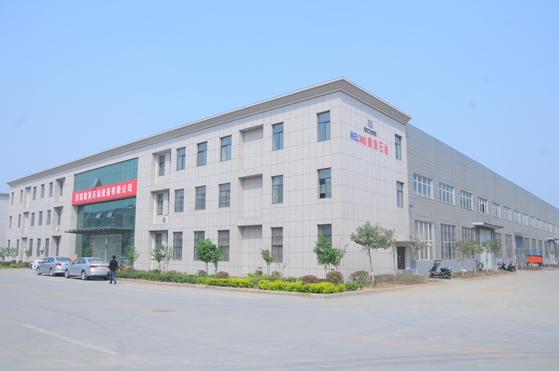
CHINA WELONG - 20+ years manufactuer in oilfield tools
